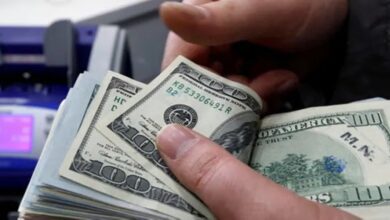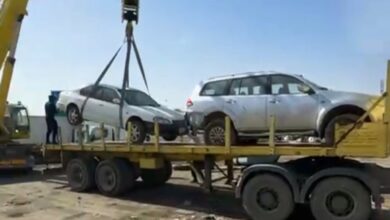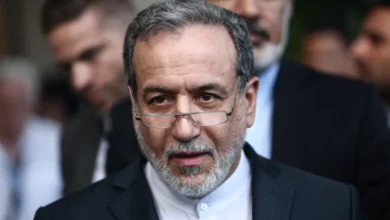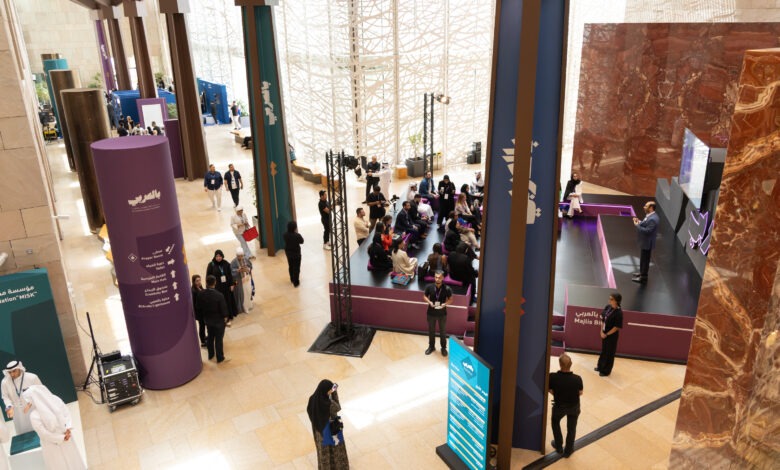
As environmental and social challenges grow more urgent, Qatar Foundation’s BilAraby initiative is spotlighting pioneering Arab contributions that merge innovation with sustainability. At its inaugural summit, BilAraby presented compelling stories from across the Arab world, emphasizing how local resources can be used in environmentally and socially responsible ways.
BilAraby was launched by QF in 2024 to empower and amplify the voices and ideas of Arabic speakers from across the world, and provide them with opportunities to create meaningful and innovative content, reflecting QF’s commitment to providing platforms that foster Arab creativity and drive positive social and cultural change.
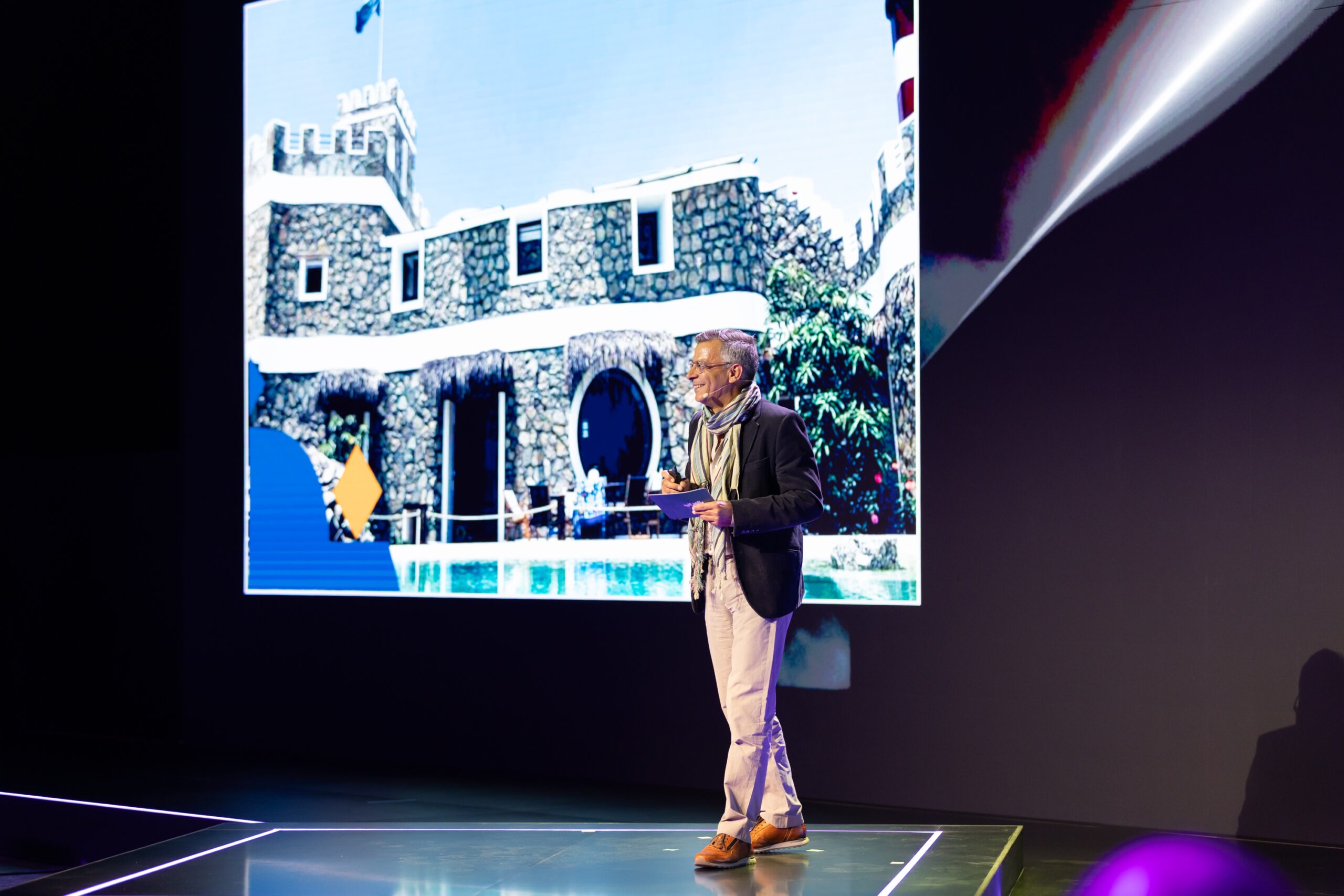
At its first summit – which saw thought leaders, creators, and innovators express their ideas and perspectives, all in the Arabic language – speakers Razan Zuayter, Timur El Hadadi, Amer Darwich, and Sumaiya Almaimany shared experiences that not only celebrated their successes, but also represented a call to action. Their stories show that sustainability can begin with small, everyday actions: planting a tree, recycling waste, or supporting education with available resources. This spirit set the tone for the summit, serving as a reminder that change often begins at home.
Engineer Razan Zuayter’s journey into agriculture began not simply as an academic pursuit but as a personal mission. “I felt like an olive tree uprooted from its Palestinian land, searching for its roots,” she said at the Summit. After losing her savings during the Israeli invasion of Lebanon in 1981, she moved to Amman with her husband empty-handed.
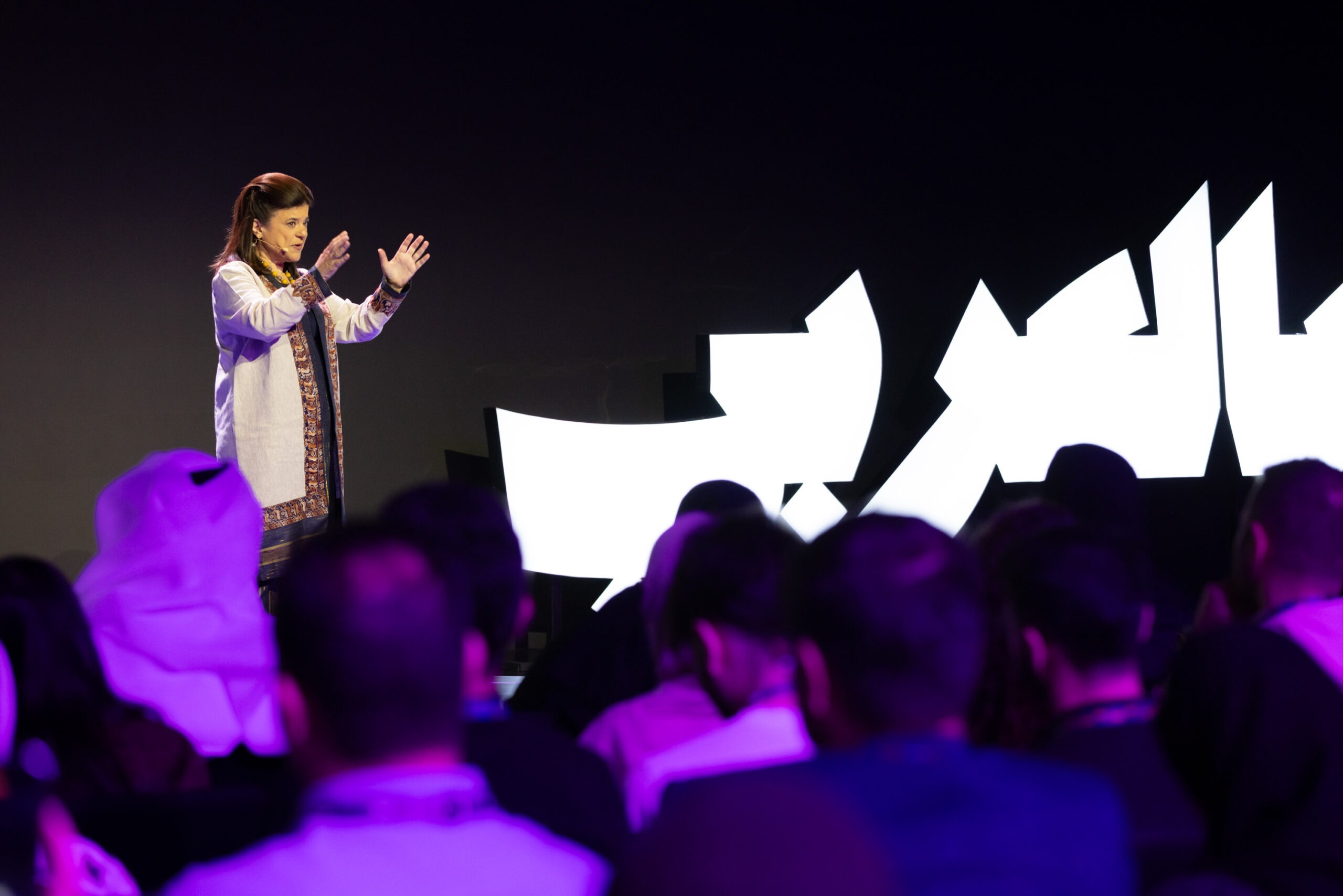
In 2000, during the Second Intifada, Zuayter transformed her anger into action. She launched Green Resistance with the slogan “They uproot a tree, we plant ten,” which evolved into the Arab Group for the Protection of Nature in 2003.
Without foreign funding, the initiative has planted 3.25 million fruit trees, aiding 47,000 farmers who, in turn, support over 250,000 people. These efforts not only combat food insecurity and climate change but also help protect land from confiscation under outdated Ottoman land laws exploited by the occupation.
Amid Gaza’s ongoing agricultural devastation, Zuayter launched the Reviving Gaza Farms campaign under the slogan “Starvation is their weapon, and agriculture is our resistance.” Despite severe restrictions on importing basic seeds, her campaign has replanted approximately 247 acres of farmland, benefitted 500 farmers and produced 5 million kilograms of vegetables.
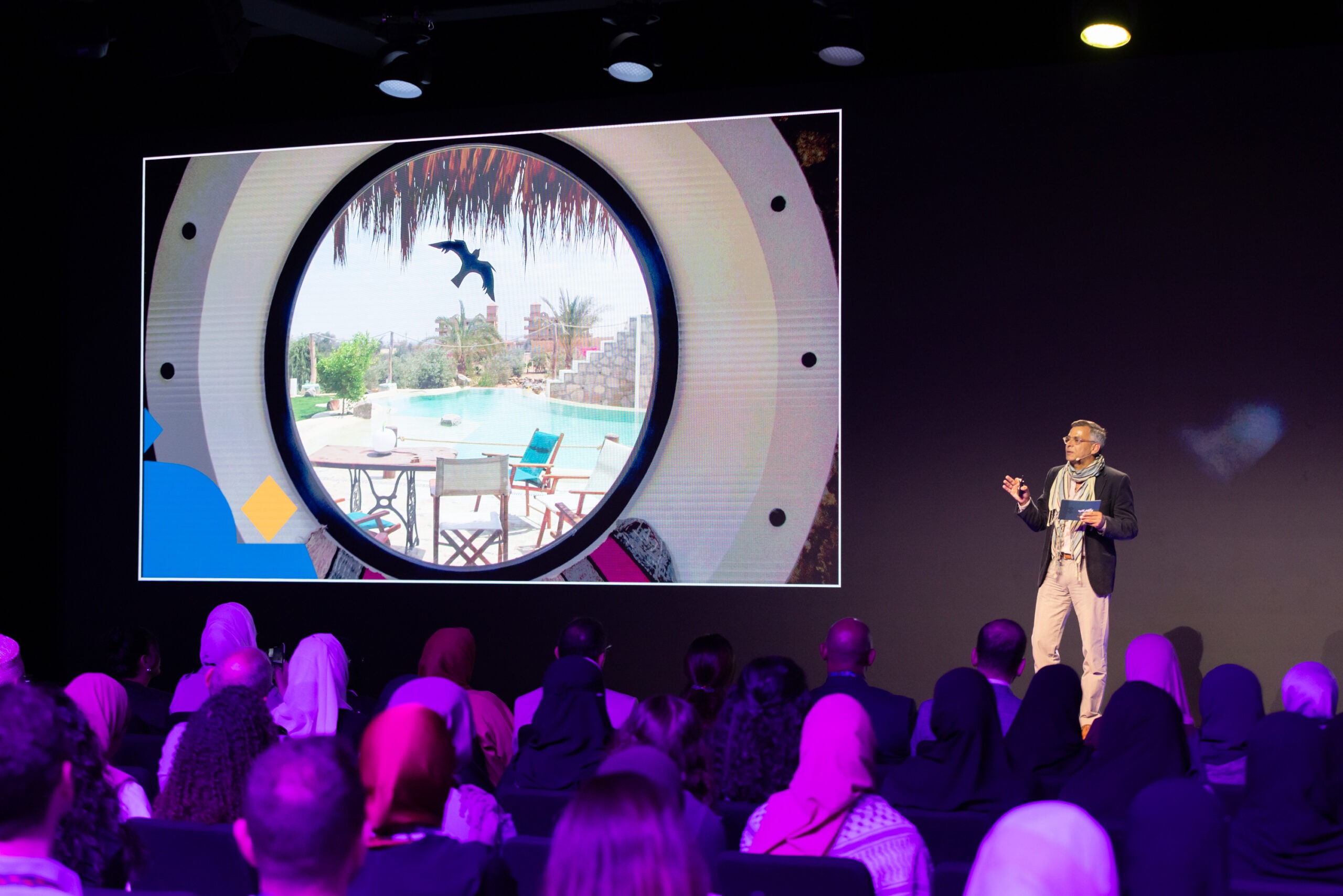
Zuayter believes that with political will, the Arab region could achieve food sovereignty. She founded the Arab Network for Food Sovereignty, uniting 35 organizations of Arab farmers, herders, and fishers. Drawing on Palestinian heritage, she concluded: “As long as I have an olive tree, a lemon, a well, and a cactus plant, I will still have myself, I will resist.” Her call to action was simple yet powerful: “Come, let’s plant together… resist with me.”
Egyptian innovator Timur El Hadidi brought a different vision of sustainability, one grounded in innate engineering. Celebrating local heritage and environmental sustainability, Timur built his home in Nubia entirely from recycled waste.
“The journey began by building a small house using plastic bottles filled with sand as an alternative to traditional stones,” he explained. Timur developed his designs drawing inspiration from the sun, moon, trees, and wind. “The trees determined the path of the walls,” he said, noting how he preserved every tree in its original place.
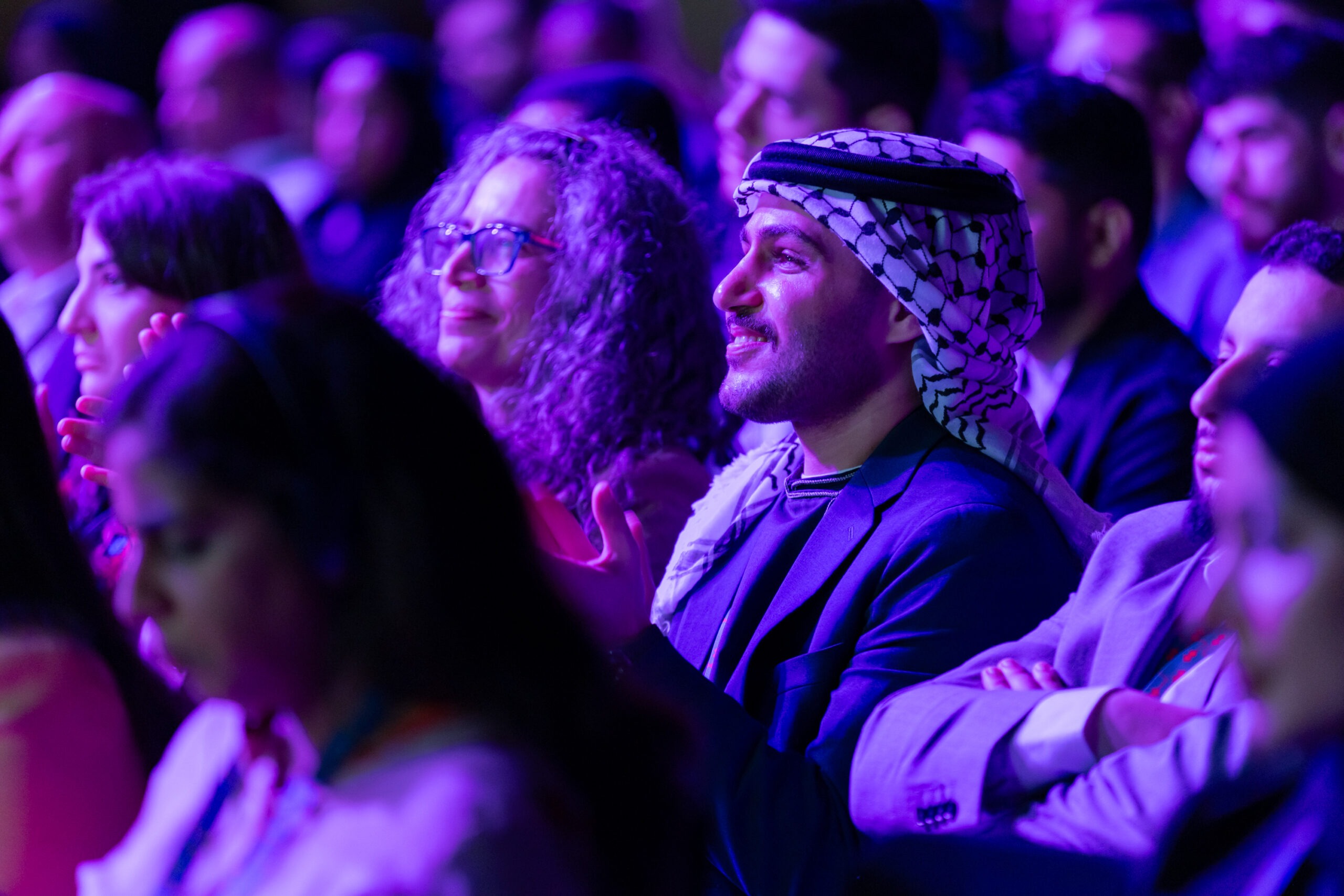
His house, constructed over four years, used 180 truckloads of concrete rubble, thousands of empty bottles, tons of recycled wood, and used car tires. Around 80 percent of the materials were recycled. “Sustainability was my compass,” he said.
Timur sees concrete rubble, even from war-torn places like Gaza, not as waste but as a seed of hope for reconstruction and rewriting history. He concluded: “The boldest ideas can be born from a pile of rubble.”
Palestinian innovator Amer Darwich turned childhood curiosity into a practical invention. “Who among us has not made a paper ship or an airplane?” he asked, recalling how he modified toys as a child, converting a toy car into a boat.
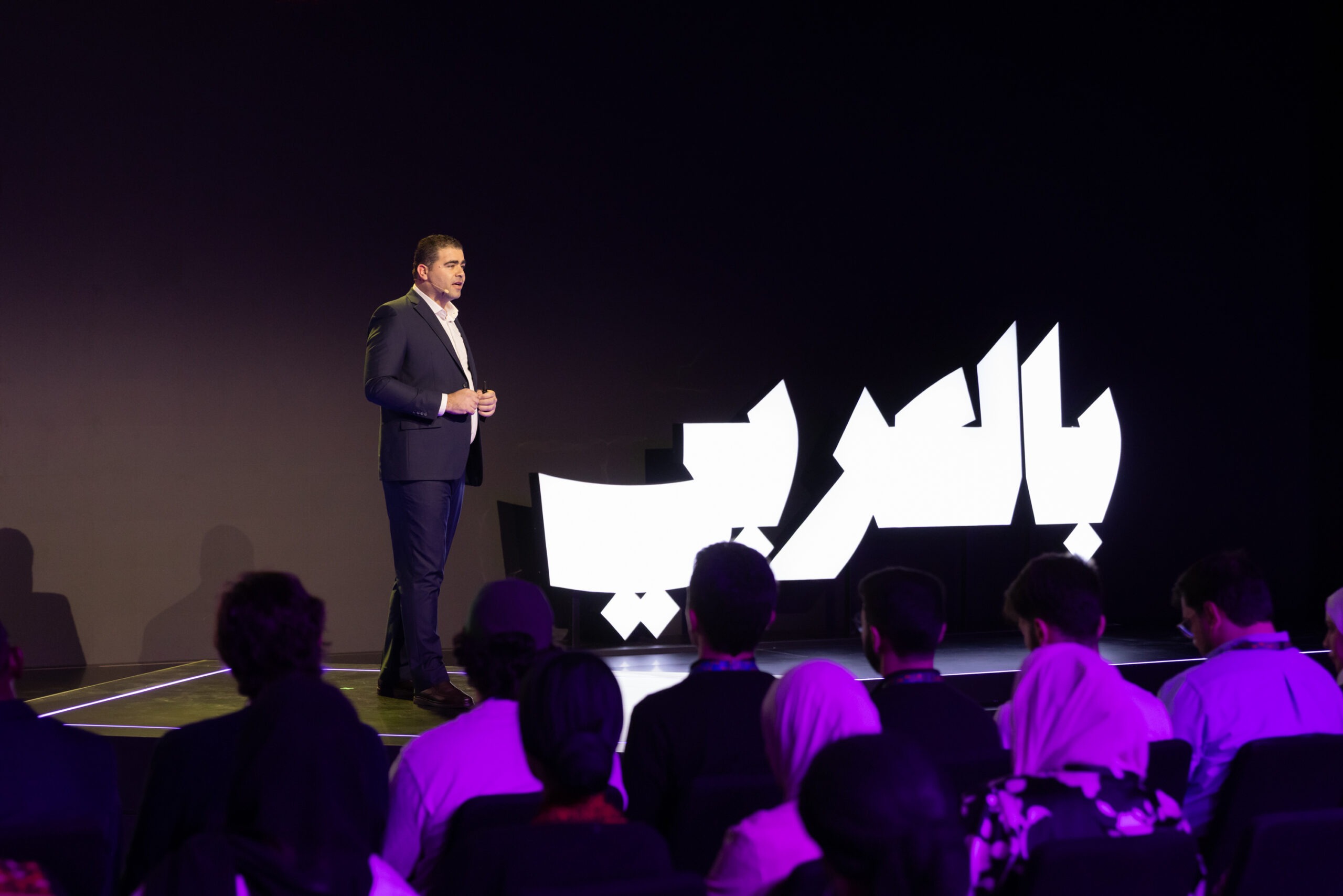
“I took the electric motor out of the car, made some modifications to it, and added it to the small boat I had carved out of vegetable crates,” Amer recounts about those experiments that sparked his interest in technology and design.
After studying economics and working as an excavator operator, a hand injury forced Amer to pivot. Unable to drive, he developed Blue Drive 48, a smartphone-controlled system for operating heavy machinery, built from salvaged car parts and a programmable board.
He hoped the technology would create new opportunities for people with special needs and lay the groundwork for broader applications in the future.
Amer’s innovations stem from necessity as much as personal passion. With wildfires on the rise, he created the Pulse Fire Fighter 48, a solar-powered, remote-controlled fire extinguisher capable of administering first aid. During the COVID-19 pandemic, he designed the Corona Fighter 48, a wireless charger and sterilizer, and the Full Body Sanitizer System 48. He also created Green Cool Land 48, an eco-friendly cooling system, and Tree City 48, which generates clean energy from tree movements.
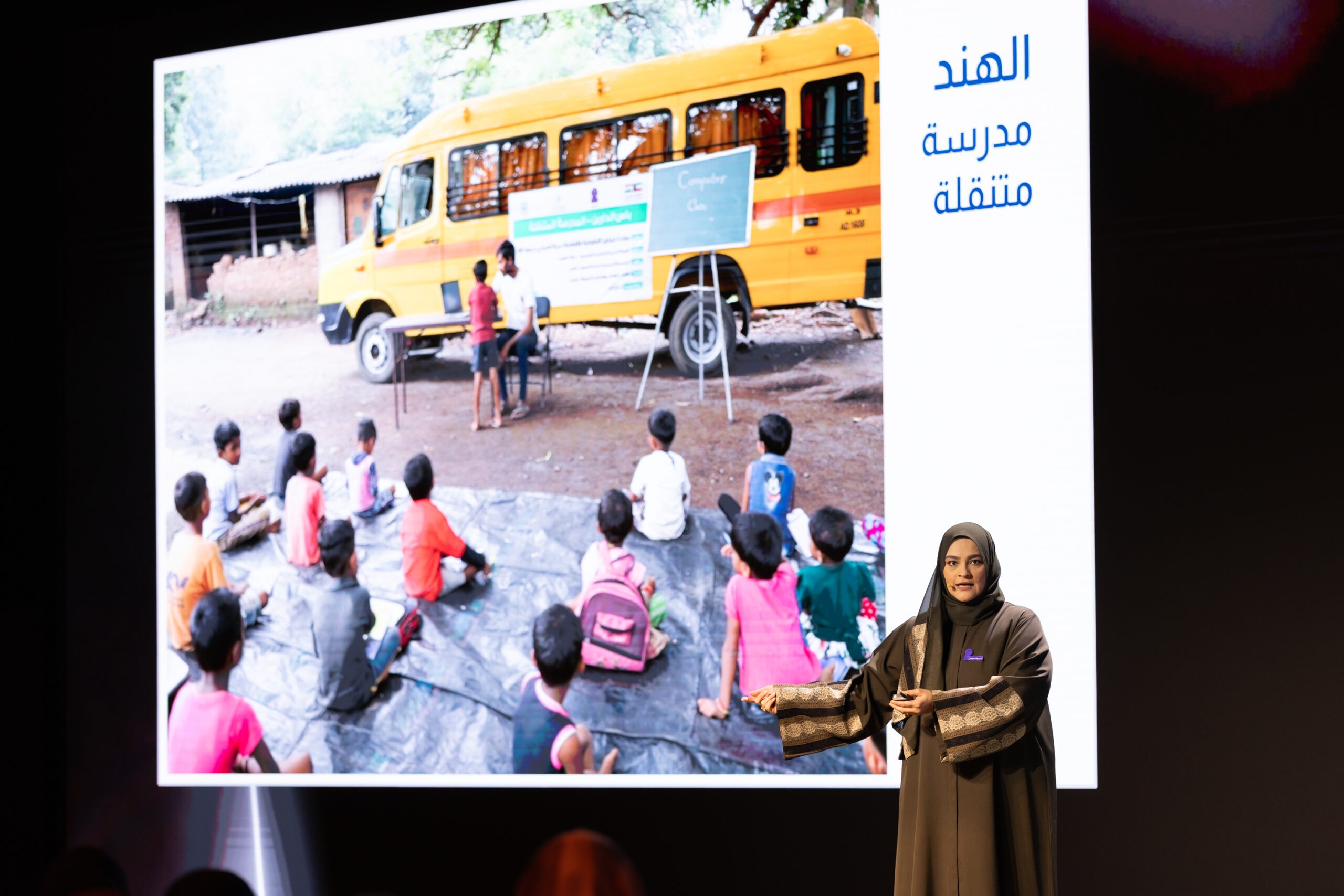
Why “48”? It is a reference to the 1948 Nakba. “It is an attempt to turn tragedy into hope and progress,” Amer explained, advocating for a stronger Palestinian industrial base.
He ended with a clear message: “Necessity is the mother of invention, not the mother of imports. Our country has all the natural and human resources it needs. Why don’t we manufacture, innovate, and invent what we need? So our ships and planes don’t remain paper.”
Kuwaiti activist Sumaiya Almaimany believes that real change starts with small steps. As a student, she wrote an article urging classmates to donate just two dinars a month to fight illiteracy, eventually raising over two million Kuwaiti dinars.
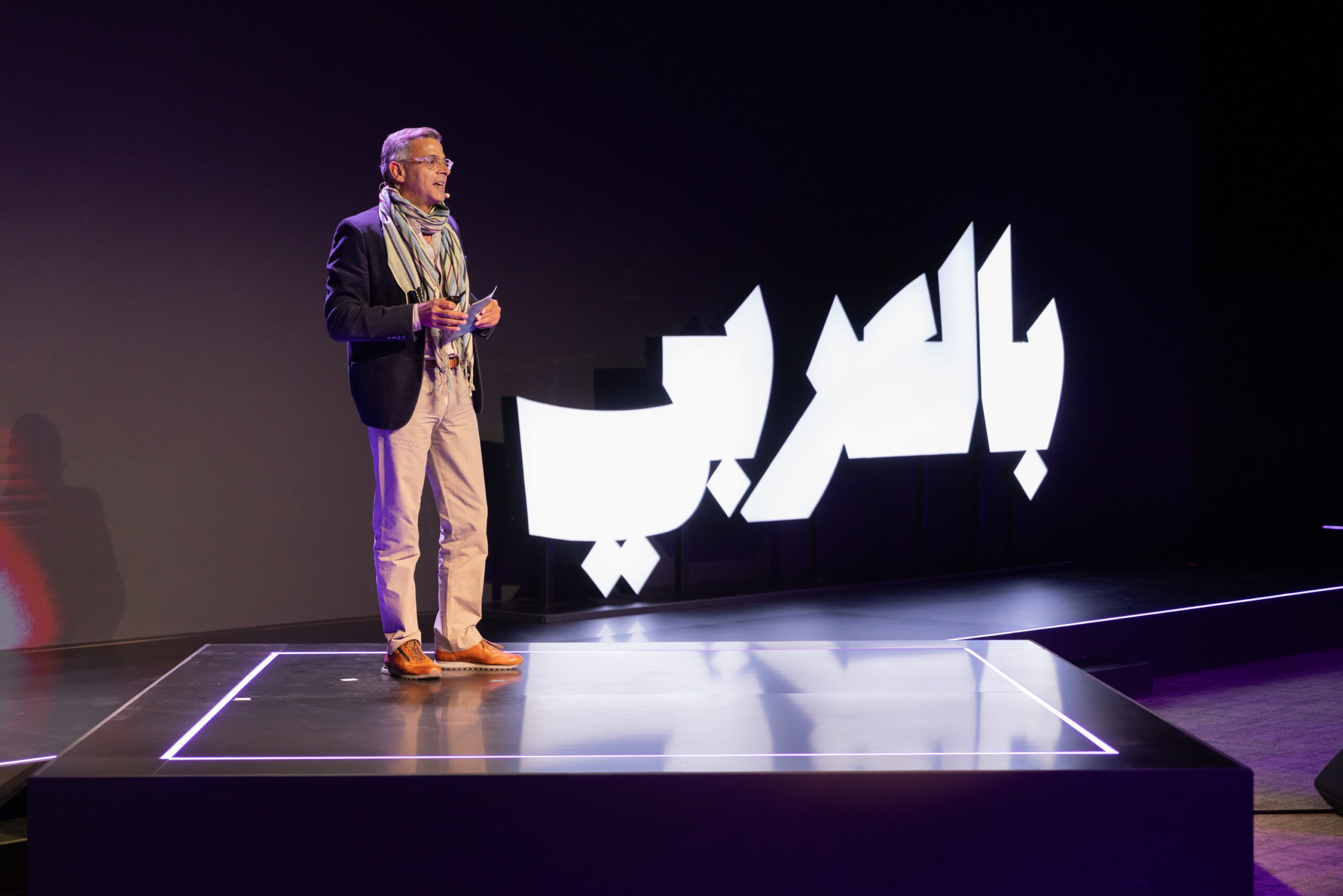
“This initiative started from an article I wrote while studying at Kuwait University, in which I invited my colleagues to donate a small amount to help combat illiteracy in underprivileged communities around the world.”
Backed by one of Kuwait’s largest charities, the project has expanded to include field visits, enabling volunteers to see the impact of their donations firsthand. Educational programs have reached underserved areas in China, Nigeria, Sudan, Gaza, Indonesia, India, and Kyrgyzstan.
The initiative also created mobile schools for remote villages and distributed copies of the Holy Quran as part of its literacy efforts, inspired by the fact that the first word revealed in the Quran was “Read,” she said.
To date, over 30,000 students in 14 countries have benefited from 25 projects launched under the Two Dinars initiative.
Sumaiya concluded with a message of hope: “Do not underestimate the small ideas that come to mind. A simple idea can become a global educational movement.”
Follow The Times Kuwait on X, Instagram and Facebook for the latest news updates








